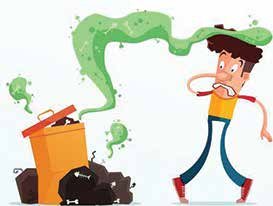In this article, we will explore the duration of animal repellent effectiveness and provide you with insightful information on how long you can expect these products to last. Whether you have a pesky squirrel raiding your garden or a persistent mosquito problem, understanding the lifespan of animal repellents will help you make informed decisions in tackling these unwanted visitors. So, let’s dive into the fascinating world of animal repellents and discover just how long their effects can endure!
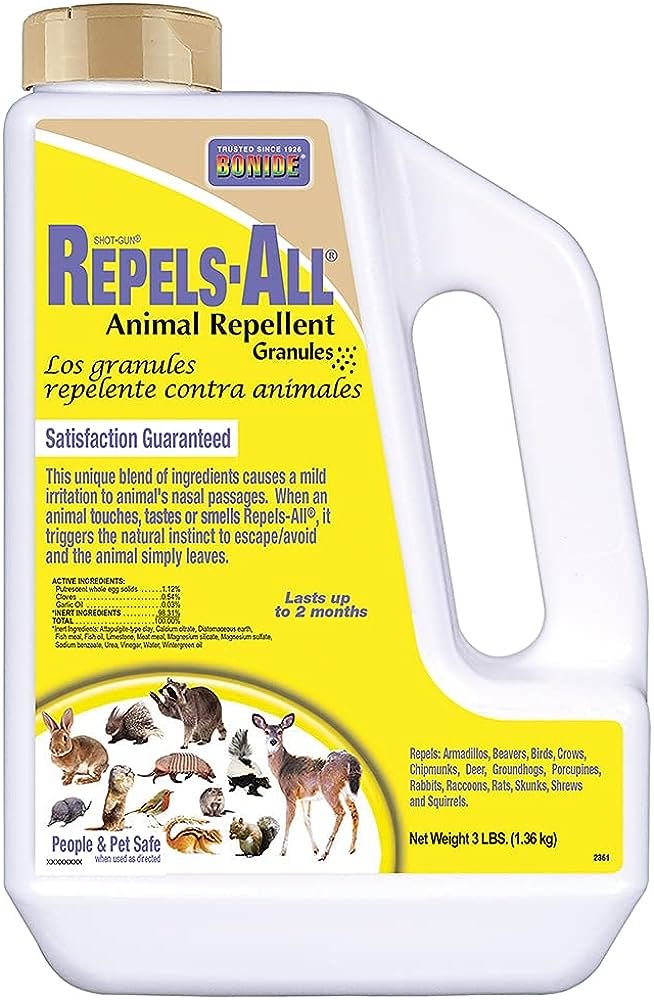

Factors Affecting the Longevity of Animal Repellent
When it comes to keeping pesky animals away from your garden or property, using animal repellent can be an effective solution. However, the effectiveness of the repellent can vary depending on several factors. Understanding these factors can help you choose the right type of animal repellent and ensure its longevity. In this article, we will explore the various factors that affect the longevity of animal repellent, including the type of repellent, environmental conditions, application method, and frequency of application.
1. Type of Animal Repellent
The type of animal repellent you choose plays a significant role in determining its longevity. There are two main types of animal repellents: chemical repellents and natural repellents.
1.1 Chemical Repellents
Chemical repellents use synthetic or organic ingredients to deter animals. These repellents are designed to target the specific senses of animals, such as their sense of smell or taste, making the area unappealing to them.
1.1.1 Synthetic Repellents
Synthetic repellents are chemically formulated to repel animals effectively. They usually contain a specific active ingredient that acts as a deterrent. The longevity of synthetic repellents can vary depending on factors such as the active ingredient, concentration, and formulation.
Active Ingredient
The active ingredient used in the repellent determines its effectiveness against specific animals. Common active ingredients found in synthetic repellents include Naphthalene, Ammonium Soaps, and Capsaicin. Each active ingredient has different properties and effectiveness against different types of animals.
Concentration
The concentration of the active ingredient in the repellent can also impact its longevity. Higher concentrations can provide stronger and longer-lasting repellent effects. However, it is essential to follow the manufacturer’s instructions for dilution and application to avoid any adverse effects.
Formulation
The formulation of the synthetic repellent can affect its longevity as well. Different formulations such as sprays, granules, or liquids have varying application methods and release rates. It is crucial to choose the right formulation based on the desired area of application and the target animals.
1.1.2 Organic Repellents
Organic repellents are made from natural ingredients, making them a more environmentally-friendly option. They often utilize essential oils or biological agents to repel animals. The longevity of organic repellents can be influenced by factors such as the type of essential oil or the effectiveness of the biological agents.
Essential Oils
Essential oils such as peppermint, citronella, or garlic are commonly used in organic repellents. These oils release strong scents that animals find unpleasant, keeping them away from the treated area. The duration of their effectiveness can vary depending on the potency of the oil used and the concentration in the repellent.
Biological Agents
Some organic repellents use biological agents such as blood meal or predator urine to deter animals. These agents mimic the presence of a predator, creating a fear response in the target animals. The longevity of biological repellents can be influenced by factors such as weather conditions, as rain can wash away the odor of the urine or blood meal.
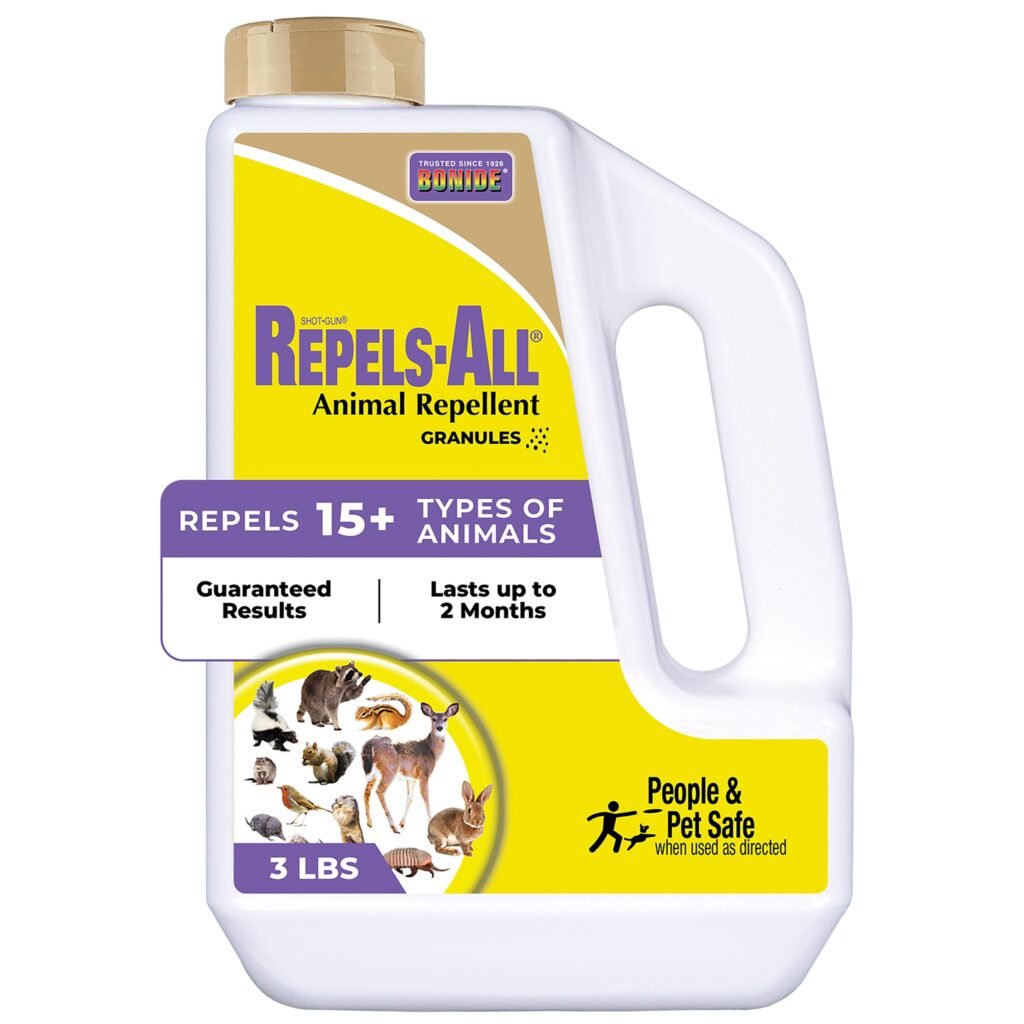

1.2 Natural Repellents
Natural repellents rely on non-chemical means to repel animals. They often utilize elements found in nature to create an unfavorable environment for animals. Some common natural repellents include plants and herbs, predator urine, and sound and light devices.
1.2.1 Plants and Herbs
Certain plants and herbs naturally repel animals due to their strong scents or taste. For example, planting marigolds or mint near your garden can repel insects and small animals. The longevity of these natural repellents depends on the lifespan of the plants and their ability to maintain their scent or taste.
1.2.2 Predator Urine
Predator urine, such as fox or coyote urine, can be an effective natural repellent. The scent of predator urine signals the presence of a potential threat, deterring animals from approaching. However, the longevity of predator urine repellents is influenced by factors such as rainfall, as heavy rain can wash away the scent.
1.2.3 Sound and Light Devices
Sound and light devices emit specific frequencies or flashing lights that animals find irritating or frightening. These devices create an uncomfortable environment, encouraging animals to stay away. The longevity of sound and light devices can vary depending on factors such as the device’s range, battery life, and exposure to the elements.
2. Environmental Conditions
Environmental conditions play a crucial role in the effectiveness and longevity of animal repellents. Factors such as temperature, humidity, rainfall, and exposure to sunlight can impact how long the repellent remains active.
Temperature
Extreme temperatures can degrade the effectiveness of animal repellents. High temperatures can cause chemical repellents to evaporate quickly, reducing their longevity. On the other hand, freezing temperatures can affect the formulation of repellents and make them less effective.
Humidity
Humidity levels can also influence the longevity of animal repellents. High humidity can cause synthetic repellents to break down or dilute, reducing their effectiveness. It is important to choose repellents that are specifically designed to withstand high humidity if you live in a humid climate.
Rainfall
Rainfall can wash away animal repellents, especially those applied in spray or liquid form. Synthetic repellents may need to be reapplied more frequently after heavy rainfall. Organic repellents using biological agents or essential oils can be especially vulnerable to rain, as it can dilute or wash away their active ingredients.
Exposure to Sunlight
Exposure to sunlight can degrade the effectiveness of animal repellents over time. UV radiation can break down the active ingredients in synthetic repellents, reducing their longevity. It is important to choose repellents that are designed to withstand prolonged exposure to sunlight if your application area receives a lot of sunlight.
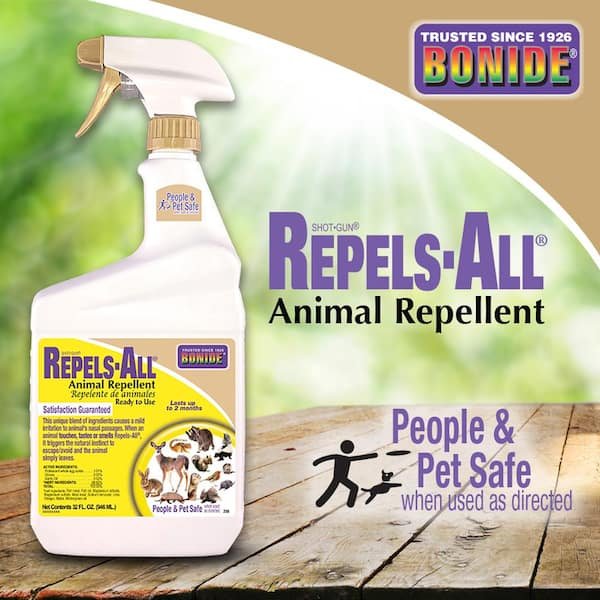

3. Application Method
The way in which animal repellents are applied can also impact their longevity. Different application methods, such as sprays, granules, liquid concentrates, or electronic devices, have varying durations of effectiveness.
Spray
Spray repellents are popular for their convenience and ease of application. However, their longevity can be influenced by factors such as rainfall and exposure to sunlight. Sprays typically need to be reapplied after heavy rain or every few weeks to maintain their effectiveness.
Granules/Pellets
Granule or pellet repellents are often spread on the ground or around plants to create a barrier against animals. These repellents release their active ingredients slowly over time. Granule or pellet repellents may need to be reapplied periodically, especially after rainfall or when the granules have been depleted.
Liquid Concentrate
Liquid concentrate repellents are mixed with water and applied using sprayers or watering cans. The effectiveness and longevity of liquid concentrate repellents can be influenced by factors such as the concentration used and the frequency of application. Follow the manufacturer’s instructions carefully for the best results.
Electronic Devices
Electronic devices, such as ultrasonic or solar-powered repellents, use sound or light to deter animals. These devices can have long-lasting effects, but their longevity may vary depending on factors such as battery life or exposure to the elements. Regular maintenance and monitoring are necessary to ensure their effectiveness.
4. Frequency of Application
The frequency of application is a critical factor in maintaining the longevity of animal repellents. Different stages of application, such as initial application and reapplication, can affect the overall effectiveness of the repellent.
Initial Application
When initially applying animal repellent, it is crucial to follow the manufacturer’s instructions carefully. Applying the recommended amount ensures the repellent’s effectiveness and longevity from the start. Proper application lays the foundation for long-term protection against animals.
Reapplication
The need for reapplication will depend on factors such as environmental conditions, type of repellent, and the specific duration of effectiveness indicated by the manufacturer. For example, repellents applied in spray form may need to be reapplied more frequently than other forms. Regularly monitoring the effectiveness of the repellent and reapplying as needed will help maintain its longevity.
Long-Term Effects
Some animal repellents may have long-term effects on target animals. For example, certain synthetic repellents can create aversion or conditioning in animals, making them less likely to return to the treated area even after the repellent has worn off. The long-term effects of repellents can save you time and effort in the future by deterring animals from returning to your property.
In conclusion, the longevity of animal repellent is influenced by various factors, including the type of repellent, environmental conditions, application method, and frequency of application. Understanding these factors and considering them when choosing and applying animal repellent can help ensure its effectiveness and long-lasting results. Take into consideration the specific needs of your situation and consult with professionals or product experts to select the most appropriate repellent for your needs. With the right repellent and proper application, you can keep unwanted animals at bay and enjoy a pest-free environment.
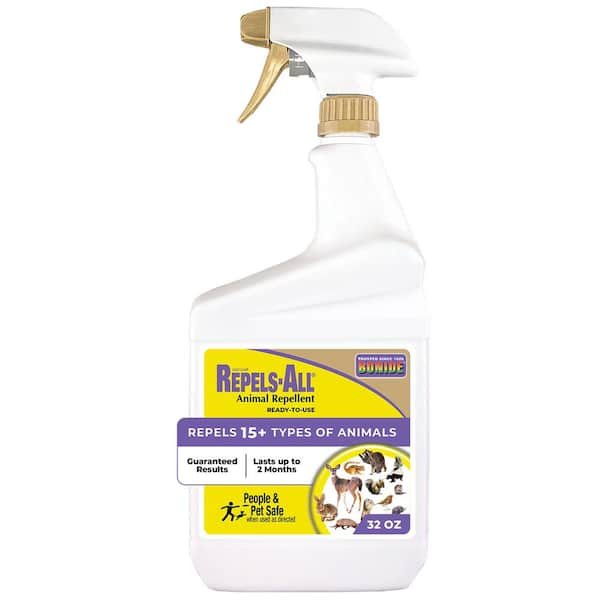

Your Expert in Animal Control and Extermination. Trust our experience for humane, effective pest management, protecting your property and ensuring peace of mind with Michael S.




